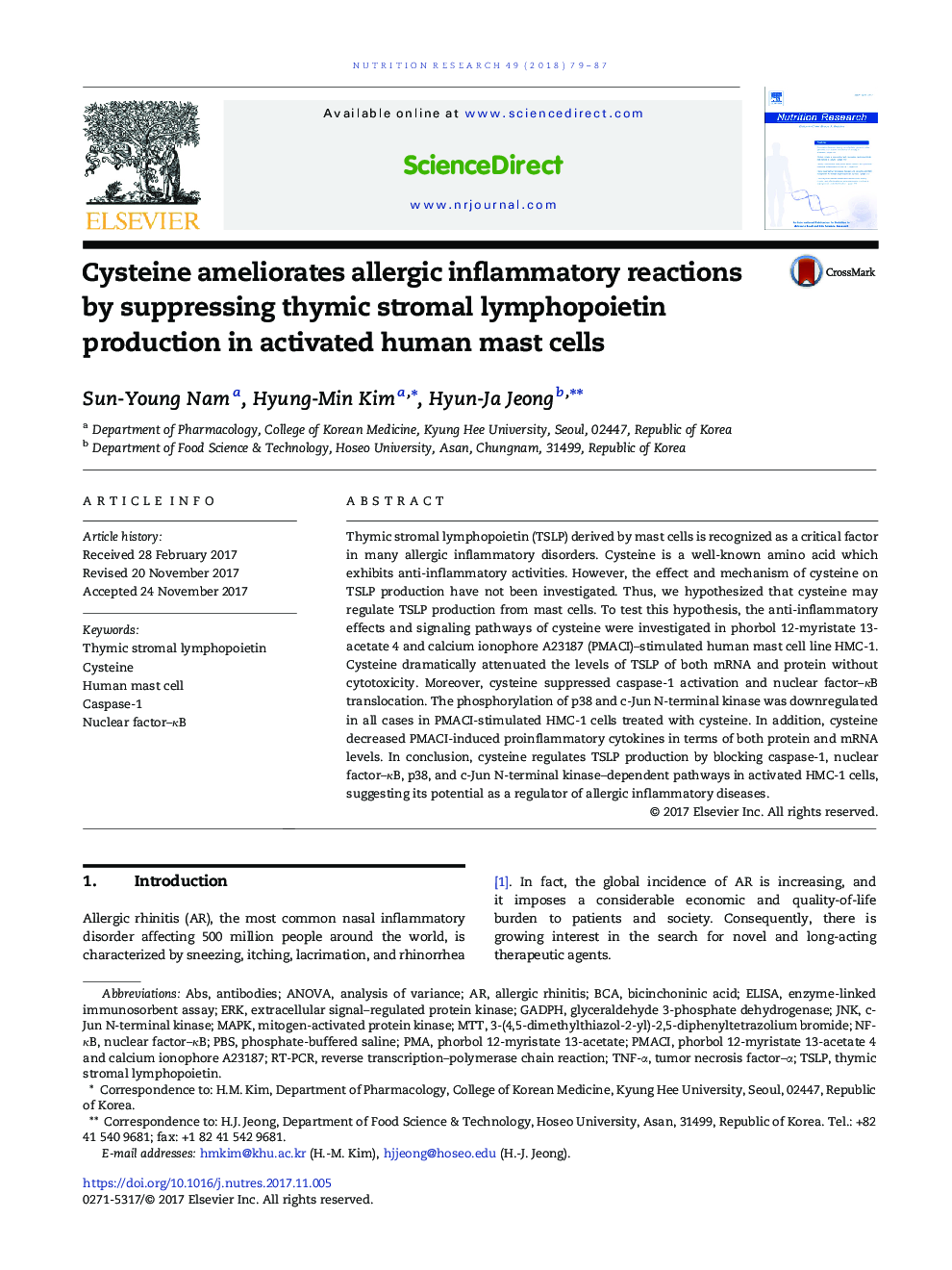| Article ID | Journal | Published Year | Pages | File Type |
|---|---|---|---|---|
| 8634345 | Nutrition Research | 2018 | 9 Pages |
Abstract
Thymic stromal lymphopoietin (TSLP) derived by mast cells is recognized as a critical factor in many allergic inflammatory disorders. Cysteine is a well-known amino acid which exhibits anti-inflammatory activities. However, the effect and mechanism of cysteine on TSLP production have not been investigated. Thus, we hypothesized that cysteine may regulate TSLP production from mast cells. To test this hypothesis, the anti-inflammatory effects and signaling pathways of cysteine were investigated in phorbol 12-myristate 13-acetate 4 and calcium ionophore A23187 (PMACI)-stimulated human mast cell line HMC-1. Cysteine dramatically attenuated the levels of TSLP of both mRNA and protein without cytotoxicity. Moreover, cysteine suppressed caspase-1 activation and nuclear factor-κB translocation. The phosphorylation of p38 and c-Jun N-terminal kinase was downregulated in all cases in PMACI-stimulated HMC-1 cells treated with cysteine. In addition, cysteine decreased PMACI-induced proinflammatory cytokines in terms of both protein and mRNA levels. In conclusion, cysteine regulates TSLP production by blocking caspase-1, nuclear factor-κB, p38, and c-Jun N-terminal kinase-dependent pathways in activated HMC-1 cells, suggesting its potential as a regulator of allergic inflammatory diseases.
Keywords
TSLPBCAERKRT-PCRGADPHABSJnkPBSphorbol 12-myristate 13-acetatecaspase-1NF-κB3-(4,5-dimethylthiazol-2-yl)-2,5-diphenyltetrazolium bromidec-Jun N-terminal kinasePMAMAPKMTTantibodiesbicinchoninic acidanalysis of varianceANOVAEnzyme-linked immunosorbent assayELISAtumor necrosis factor–αAllergic rhinitisHuman mast cellCysteineTNF-αNuclear factor–κBThymic stromal lymphopoietinPhosphate-buffered salinereverse transcription–polymerase chain reactionmitogen-activated protein kinaseglyceraldehyde 3-phosphate dehydrogenase
Related Topics
Life Sciences
Biochemistry, Genetics and Molecular Biology
Endocrinology
Authors
Sun-Young Nam, Hyung-Min Kim, Hyun-Ja Jeong,
